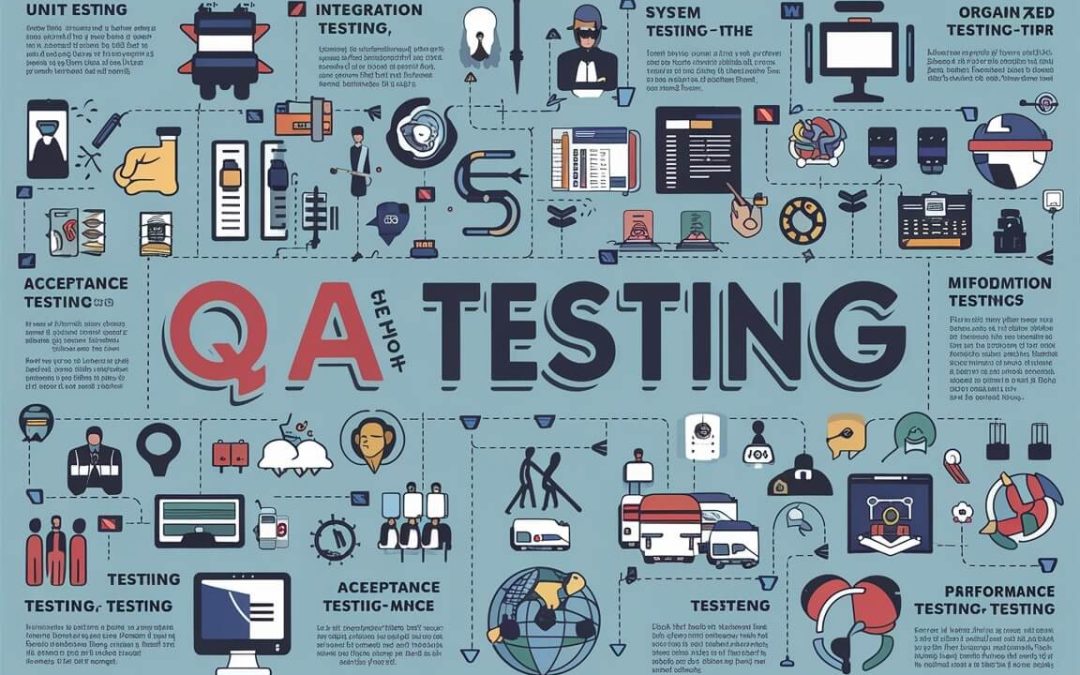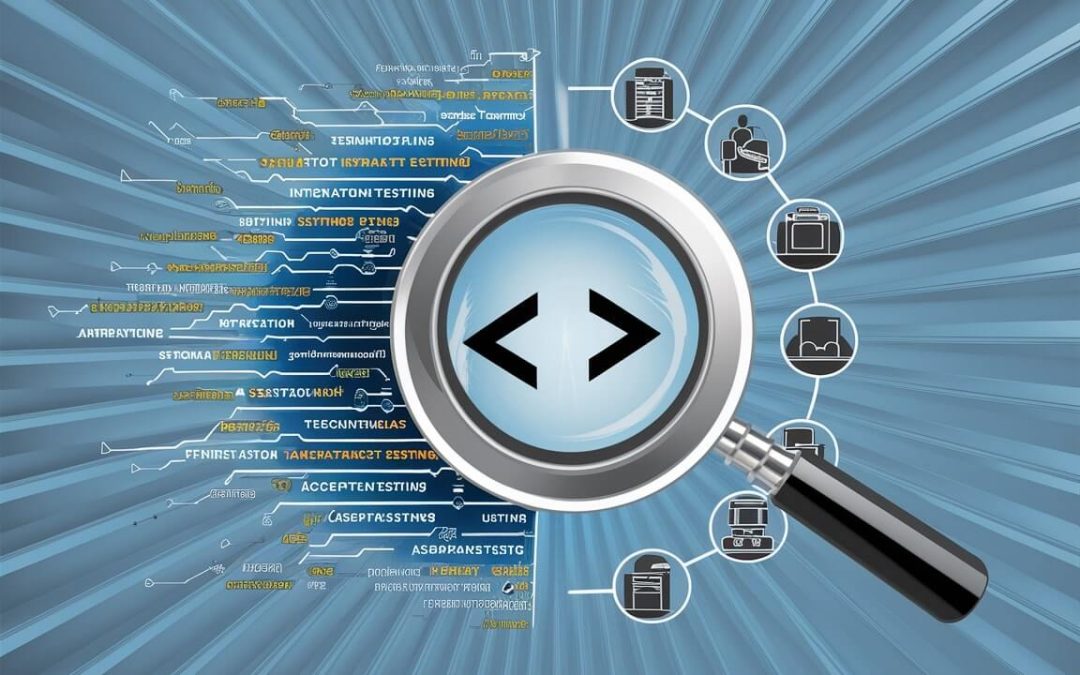In our world today, data-intense enterprises are swamped with information. Their challenge is to distill valuable insights from this great sea. This is where ETL tools come in – think of them as lifeboats. They help direct you through this ocean of data and bring back something useful. But with so countless ETL tools on the market, what’s the correct one for your business? This post examines the strengths of Azure Data Factory (ADF) in addition compares it to other main players on the market. You’ll be better guided (Consideration Stage)
Understanding Your Needs (Awareness Stage):

Before diving in, take a moment to consider your specific needs. Here are some factors to think about Azure Data Factory Consulting Services:
Data Sources: Where is your data coming from? Databases, files, social media? Some tools are excellent for specific data sources and struggle with others.
Data Volume and Complexity: Are you dealing with terabytes of data piled complexly on top of each other, or a smaller, more manageable data set? Scale is key here.
Technical Skills: Does your team boast in-house expertise in data engineering, or do you need a user-friendly tool?
Budget: ETL tools are available in all shapes and sizes, with pricing models to match your wallet’s depths.
Azure Data Factory: A Powerful Contender (Consideration Stage):

Now let’s see how about Azure Data Factory Consulting Services stacks up against the competition:
Strengths:
- Cloud-Based: No need for expensive on-premise infrastructure, ADF runs seamlessly in Microsoft’s Azure cloud.
- Scalability: ADF will grow as new data streams become part of your business and it can handle any amount of data, from small to massive. And as the volume grows so does its capacity–and without extra costs.
- Ease of Use: Its user-friendly interface comprises drag-and-drop functionality, making it available even for teams who do not have widespread knowledge of coding.
- Massive Range of Connectors: ADF has more than 90 built-in connectors, covering a extensive variety of data sources.
- Cost-Effectiveness: ADF employs pay-as-you-go pricing, so that you only pay for exactly what you use. It’s an economically very competitive option.
Deficiency Analysis:
- Learning Curve: In Despite of being intuitive to the user. however, ADF does have some features that may entail a moderate learning curve for non-technical users.
- Vendor Lock-In: If you are heavily invested in the Azure ecosystem, then ADF might be a natural choice. If not, you may want to think about the other options.
The Competition: Exploring Alternatives:
This quick scan of popular ETL tools is meant to showcase their advantages
- Talend Open Studio: A strong, flexible, open-source choice–that you need to code.
- Informatica Power Center: A comprehensive enterprise solution that is perfect for intricate data transformation, but comes with considerable investment.
- Five Tran: A cloud-based ETL tool noted for its simplicity and focus on data sources in the cloud.
- AWS Glue: An ETL service managed by AWS and tailored to its cloud platform alone.
How to Find Your Perfect Match about Azure Data Factory Consulting Services
When it turns to the aspects of ETL tools, there is no one-size-fits-all answer. The best choice for respectively person depends on their individual needs in addition priorities. Consider these factors:
Cost: Compare upfront costs for some systems against ongoing expenditures for others, such as ADF’s pay-as-you-go model.
Technical Expertise: If your team lacks coding capabilities, then an easy-to-use option like ADF would be the best choice for them.
Potential for Expansion: Ensure that the program you choose is capable of handling your present and future data loads
The Value of Azure Data Factory Consultant Services:
Are you still adrift among the choices for ETL tools? Do not worry! Azure Data Factory Consulting Services can be your life preserver. Azure Data Factory Consulting Services who specialize in ADF will help you realize benefits such as these:
Knowing Your Data Needs: They collaborate with you to explore your specific data landscape and challenges.
Make a Recommendation about ETL Tools: Professional Azure Data Factory Consulting Services can help you compare ADF with other options and work together to identify the best tool for your business needs.
Set up and Run Your Chosen Solution Well: Whether it is the ETL tool you employ or just a new batch processing framework you decide to follow, the professional engineers can set all of them up correctly and make sure that they keep performing smoothly.
By calling on Azure Data Factory Consulting Services, you can approach the crowded ETL tool field confidently and, in the end, select a solution that helps you uncover the hidden potential hidden in your data.
Choosing the Right ETL Tool for You: A Thorough Exploration of Azure Data Factory
There is an information tsunami engulfing businesses today – they have data everywhere and need help pulling out what’s useful for them in making decisions (Awareness Phase). ETL (Extract, Transform, Load) tools are here to the rescue. They are ships in this vast ocean of data, gathering up treasures for you. When the market ng funnel offers so many choices in ETL tools, how can you find out which one is right for your business? This comprehensive guide leads you through how to make your choice by directly comparing Azure Data Factory (ADF) and popular alternatives.
Mapping Your Data Journey
Before starting out on your ETL tool odyssey, take a moment to map your own unique data journey. Here are some essential questions to ask:
Data Sources: Where is your data located? Is it spread out across databases, spreadsheets, Twitter feeds or some mix of the three? Some ETL tools are especially strong in certain data sources.
Volume and Complexity of the Data: Are you dealing with petabytes of hideously complex information or just a small and manageable data set? You must have scalability, or you will quickly run out of room for your data.
Technical Expert: The technical expertise of your team has to be recognized in data engineering, or you may want a tool that is serviceable without proficiency in coding? Budget: ETL tools are suitable for a variety of budgets with options ranging from open-source software to enterprise-sized solutions. Weigh the initial costs against ongoing payments.
Introducing Azure Data Factory: A Feature-rich Competitor (How to Base Your Decision)
So, we just take a look at how about Azure Data Factory Consulting Services compares with others, learning more and more (even at this early stage of consideration):
Strengths:
Cloud-Based Advantage: There’s no need for expensive on-premise infrastructure. ADF seamlessly integrates with the Microsoft Azure cloud platform. It uses the latter’s scalability and flexibility to its advantage.
Effortless Scaling: As your data grows, ADF grows with it. Last year’s model is good for working with small data sets. But this year? Data on a grand scale, and even more heavy-laden.
User-Friendly Interface: A drag-and-drop interface is offered by ADF making it easy- even for teams without a lot of coding experience- to build data pipelines. This low code approach serves not only the technicians but also the non-technician.
Extensive Connectivity: ADF provides more than 90 pre-built connectors so that data from all over – from far-flung sources, both on-premises and offsite – can be integrated effortlessly. Custom coding is no longer necessary.
Cost-Effective: Using a pay-as-you-go price model, ADF means you will only be charged for the facilities you use. As a service for companies of every size, it is economical.
Weaknesses:
Learning Curve: Though ADF is user-friendly, it still has some level of complexity in the area of data transformations and orchestration. To any non-technical user, there may well be a slight initial learning curve.
Vendor Lock-In: If your IT infrastructure relies heavily on the Microsoft Azure ecosystem, then perhaps ADF is a natural fit. However, if you prefer a solution that is vendor agnostic, works across different cloud platforms and suits your every need in every detail, there are other options.
Exploring the ETL Landscape: Alternatives in Focus
The data integration landscape is full of choices, and how to choose an ETL tool herself understands that Aegis may be overwhelmed. Following is a quick comparison of some popular alternatives, emphasizing their respective strengths:
Talend Open Studio: A powerful and flexible option for a business with good in-house data engineering expertise that wants cost-effective solutions. However, Talend Open Studio demands expertise in coding, which may require training your staff as well.
Informatics Power Center: It is a robust enterprise-class solution excelling in complex data transformation. This makes it perfect for big business which really needs a lot of management about what to do with all those numbers. But it comes with a hefty price tag attached; that might not be best option for smaller businesses or those looking to save money.
Five Tran: A cloud-based ETL tool that is noted for its ease of use and its focus on cloud data sources. Five Tran is perfect for duplicating data from cloud applications to data warehouses, and is therefore a natural choice if your business is heavily reliant on cloud-based data.
AWS Glue: A managed ETL service specifically designed for the AWS cloud platform. If your entire data infrastructure resides within the AWS ecosystem, it may well integrate seamlessly with AWS Glue. However, its functionality could be limited if you have data stored externally from AWS.
Decision Stage: Aegis for ETL Come out that your tool to be Ideal
The best ETL tool isn’t necessarily right for everyone. So, what is a good choice depends on your particular needs and priorities. Here, in the Decision Stage, are some factors you need to think about and toward which Athena will be your hero:
Budget: Aegis can help you break down one-time charges of some tools versus ongoing subscription fees for others. We’ll evaluate the total cost of ownership (TCO) to give you more information, enabling you to make the decision that’s right for your bottom line.
Technical expertise: If your team lacks coding skills Aegis can recommend user-friendly tools with drag-and-drop interfaces (like Azure Data Factory (ADF). We understand that not every company employs a squad of data engineers, and so we’ll help find a solution which will allow your team to work best. Scalability: Aegis will make sure the tool it suggests for you can handle your present data volume as well as scale effortlessly when more and more are coming in.
Cloud solutions like ADF are unparalleled in their ability to scale up, and Aegis can show you how to test this out. Security and Compliance: If your data is confidential, then you would definitely prioritize on features in the ETL tool which provides built-in security and compliance certification. Azure Data Factory employs rigorous security protocols and is compliant with various certifications that will shield your data from prying eyes. Aegis Interpretive Power as Your Trusted Advisor on the data journey (Decision Stage and Loyalty Stage)
Daunt of option stress of choosing a ETL tool? The trip of handling data, make sure shall consist in Aegis can accompany you throughout the whole journey—-Feel And how “here’s how.:
Data Landscape: Coming on Board Assessment with your existing data production environment (sources formats and conditions), figures out your current challenges in blunt terms. This investigation is intended to ensure that we suggest the ETL tool which best suits your specific case.
Custom-Tailored Recommendations: Aegis can provide you with the most appropriate ETL tool based on your own peculiar needs and view of the budget. It could either be Azure Data Factory or some other tool from among its competitors. We shall offer you a clear analysis of the pros and cons associated with each alternative. Then, using this material as evidence, you can make an informed choice.
Seamless Implementation and Optimization: When you have chosen your ETL tool, Aegis can guide you through its deployment and configuration so that everything runs smoothly. Specifically, for ADF, we will help you to build strong data pipelines, optimize data transformations, and link it with other Azure services to form an integrated data analysis platform.
Ongoing Support and Expertise: The journey of data will not end once it has wrapped up. Aegis itself will continue to offer you all-round support so that the ETL tool and its performance keep meeting changing business needs at your own enterprise. We can supply performance monitoring, data quality management solutions, user training services and troubleshooting: as a result, your data pipeline remains humming efficiently and allows its hard-won fruits to be harvested.
How to Start Data Journey by Aegis
By utilizing the right ETL tool together with Aegis ETL services expertise, you’ll turn raw information into a strategic asset that drives better decision-making, management innovation and eventually business growth (Loyalty Stage). Don’t be hesitant: if you don’t take the plunge into your data journey, then when can you?? With Aegis to guide you through it all, let your imagination roam free in the realm of data
[Call to Take action 2] Our latest high-profile case study demonstrates how grateful one bank was with our assistance – they achieved a 100% increase in customer satisfaction through ETL personalization. Please download it now!
[Call to Take action 3] Click here to visit our services page, where you can inquire all, you want about what we offer. Now is not the time to miss doing ETL, it is time to get started on your ETLjourney …
Top 10 FAQs About Azure Data Factory (ADF) and ETL Tools
- What is ETL? (Awareness)
ETL can be understood as to extract, transform, load. An ETL process includes extracting data from diverse sources, transforming it into a form that you can put to usage, and loading it into a central repository intended for analysis.
- What are the paybacks of using an ETL tool? (Awareness)
ETL tools automate the process of data extraction, transformation, in addition loading, saving you time and resources. And the superiority and uniformity of data is better-quality, too, which leads to better decision-making.
- What is Azure Data Factory (ADF)? (Consideration)
ADF is a cloud-based ETL service which is offered by Microsoft Azure. Employers are able to easily bind a variety of pieces of data into a source, process it for analysis, and then implement the results. This is great for both data warehouses or data lakes.
- What are the advantages of using ADF over other ETL tools? (Consideration)
ADF not individually offers a user-friendly interface, scalability, an extensive range of connectors, and a pay-as-you-go pricing model, nonetheless its interface integrates seamlessly with other Azure services.
- Is ADF a good fit for my business? (Consideration)
ADF is a scalable ETL tool which suits businesses of all sizes. But when deciding upon, there are other aspects you must consider: Your needs, budget, and technical expertise.
- What are the costs associated with using Azure Data Factory? (Decision)
ADF does not generate additional costs for you, but employs a pay-as-you-go pricing model–so you only pay for what you employ. This is a more reasonable option for companies with fluctuating data capacities.
- How can I get started with Azure Data Factory? (Decision)
ADF offers a free trial version to aid your exploration. Microsoft Azure also provides consulting services for assistance on the ground with implementation and optimization.
- What are some alternatives to Azure Data Factory? (Decision)
Well-known alternatives include Talend Open Studio, Informatica PowerCenter, Five Tran, and AWS Glue. The best choice for you depends on your specific priorities and requirements.
- How can I ensure my data pipelines remain optimized with Aegis? (Loyalty)
That will depend on sophisticated monitoring and ongoing performance optimization, As well as data quality management. And you should rely on consulting services for expert support in maintaining your ETL environment.
- Do you have long-term benefits of using an ETL tool? (Loyalty)
By using an ETL tool like ADF it offers much long-term, as you get valuable insights from your data Which facilitate improved decision-making, innovation and therefore a competitive edge.
Read More:





